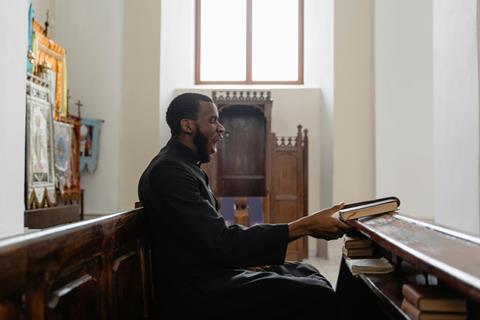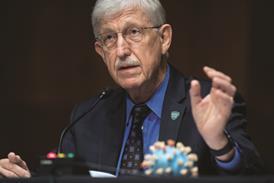Johnny Rivera explores why Christian leaders must learn to fill up before pouring out, moving from unsustainable ‘canal’ ministry that gives as soons as it has to life-giving ‘reservoir’ leadership that flows from overflow

A few years ago, I came across a passage from Bernard of Clairvaux that has never left me. Writing nearly nine centuries ago in Sermon 18 on the Song of Songs, he said: “The man who is wise, therefore, will see his life as more like a reservoir than a canal. The canal simultaneously pours out what it receives; the reservoir retains the water till it is filled, then discharges the overflow without loss to itself… Today there are many in the church who act like canals; the reservoirs are far too rare… You too must learn to await this fullness before pouring out your gifts; do not try to be more generous than God.”
Bernard wrote these words in the twelfth century, but their relevance has only grown. In an age of constant output and hurry, his wisdom exposes the same imbalance we see today: we have learned to pour out but not to fill up.
Just the other day, I got a painful reminder of this. After a long week of ministry demands and construction issues at our church building, I kept going, helping with some painting late into the night. I was so focused on that task that I forgot something basic: drinking water.
Jesus’ ministry rhythm was one of receiving and returning, solitude and service, hiddenness and presence.
16 hours had passed before I realised I had gone without a single sip. I ended up fainting from dehydration. Not because water was unavailable, but because I ignored it. Spiritually, we are no different. The water is right there, God ready to refresh, but we are too tangled in doing to pause and drink.
The Slow Leak of a Drained Life
Ministry has always demanded more than it returns. But in an age of digital comparison and cultural exhaustion, that drain has become more visible. In the UK, a 2023 survey by St Luke’s for Clergy Wellbeing found that 46 per cent of Church of England clergy reported feeling burned out, while 62 per cent described their workload as “unsustainable.”
Globally, a Barna Group study found that 42 per cent of pastors have considered leaving full-time ministry, citing stress and isolation. Behind these numbers are faithful men and women trying to do God’s work while quietly running dry.
Bernard’s image cuts through the noise. He reminds us that ministry is not meant to flow from scarcity but from overflow. When we lead without replenishment, even good work becomes strained. We start giving people our opinions instead of God’s truth, our personality instead of God’s presence.
If anyone could have lived as a canal, it was Jesus. Crowds pressed around him, needs never stopped, and yet he repeatedly withdrew to pray. His ministry rhythm was one of receiving and returning, solitude and service, hiddenness and presence.
Yet in today’s rush, we have traded that sacred cadence for something far less sustainable. That rhythm has largely disappeared in much of Western Christianity. We fill our calendars and call it faithfulness. We equate constant motion with spiritual maturity. But the truth is simple: when leaders stop being with God, their ministry stops being from God.
Learning to Receive Again
So how do we reclaim Bernard’s call to reservoir living? The reservoir life begins with humility, the humility to slow down, to admit we cannot sustain ourselves, and to recognise that even good work can become an idol when it replaces communion with God.
Do not confuse giving with renewal. Ministry itself is not your filling station. If you try to use your output as your input, you will eventually run dry. Renewal is a mindset, a discipline, a way of staying close to God so that what you give is not all you have; it is what overflows.
These are not the things to do, just a few practices that have helped me learn to receive again:
-
Rest without guilt.
-
Show up to worship as a worshipper, not just a worker. Even when you are leading, allow yourself to be led into God’s presence. You are not just there to serve others; you are there to meet with him. I actually pray for God to speak to me through the sermon while I am preaching it. This has been especially helpful to me.
-
Read and pray for your own soul. Resist the pull to make every quiet time about preparing a message. Let scripture and prayer fill you personally before they ever fill a sermon. This can be especially difficult for those who preach frequently. It is a constant challenge for me.
Whether you are preaching, counselling, or serving behind the scenes, the call is the same: lead from overflow, not emptiness.
Author Robert Mulholland, echoing Bernard, wrote that “spiritual formation is a process of being conformed to the image of Christ for the sake of others.” Our transformation is not for ourselves alone; it equips us to love, lead, and serve with integrity. When we reverse the order, doing before being, we become impressive canals, productive but unsustainable.
Being Filled in the Liminal Seasons
But renewal is not only about rhythm; it is also about trust, especially when the well seems dry. When we equate fullness with visible fruit, waiting feels like failure. We start to believe that God is not working because we cannot see movement. That mindset quietly shapes our churches too, teaching them that God only works in victories.
Sometimes God’s deepest work happens in the waiting. Like grass in winter, where life is quietly strengthening below the surface, God often fortifies our roots in the seasons that look barren. Elijah learned this in the silence of the cave, when God’s voice came not through wind or fire but a gentle whisper. The waiting stripped away his illusions of control and taught him that God’s presence was not tied to outcomes.
Ministry is not meant to flow from scarcity but from overflow
The same is true for us. Formation in the waiting is often what makes future fruit possible. To be renewed in a liminal season is to believe that even when nothing seems to be happening, God is still at work, both around us and within us.
Forged, Not Found
In my book MetaForge Leadership, I describe this process as being “forged.” A forge is a place of heat, pressure, and transformation. Leaders are not mass-produced; they are formed in the fire of waiting, struggle, and prayer.
God never asks us to give what we have not received. The invitation has always been the same: “Come to me… and you will find rest for your souls.” (Matthew 11:28) When we respond, our work becomes worship, our leadership becomes love, and our overflow becomes grace for others.
What if your next pour-out started with a full reservoir? Let us learn to wait and overflow together.





































No comments yet